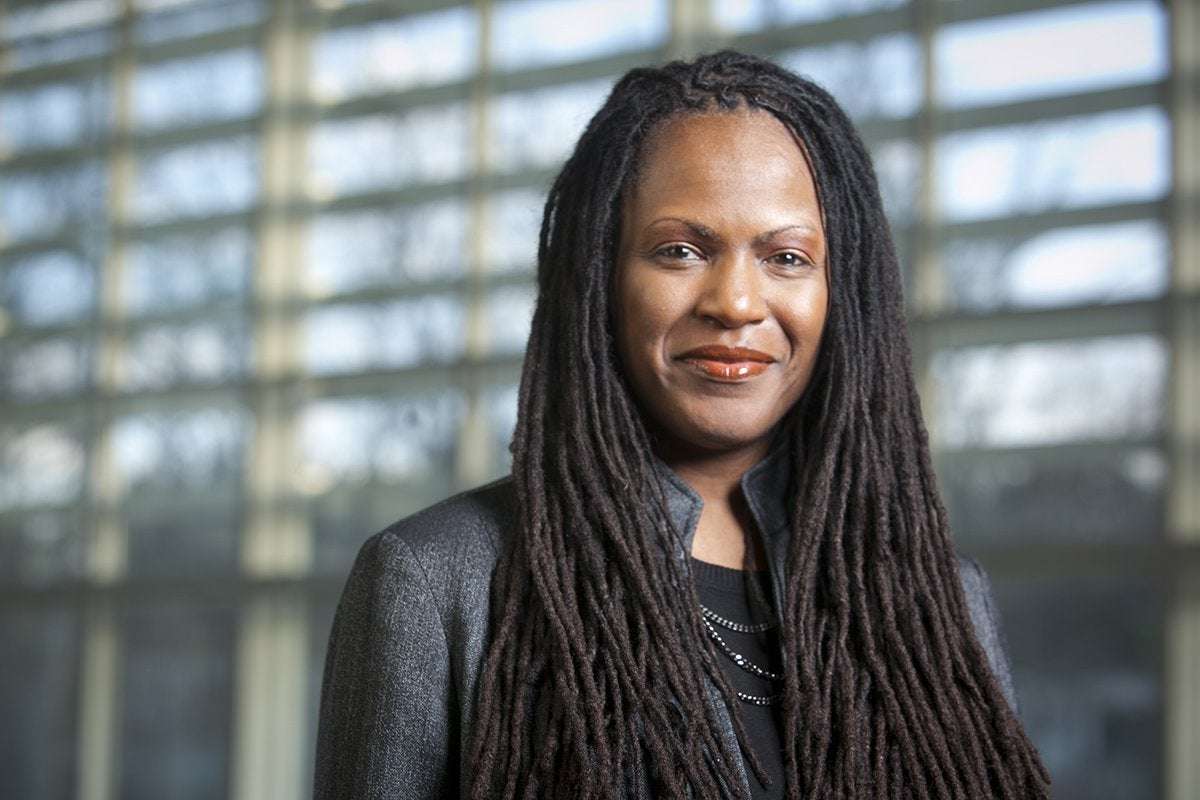New research suggests Black women with natural hairstyles, such as curly afros, braids or twists, are often perceived as less professional than Black women with straightened hair, particularly in industries where norms dictate a more conservative appearance.
The findings, published in the journal Social Psychological and Personality Science, offer empirical evidence that societal bias against natural Black hairstyles infiltrates the workplace and perpetuates race discrimination, said Ashleigh Shelby Rosette, a management professor and a senior associate dean who conducted the research at Duke University’s Fuqua School of Business.
The impact of a woman’s hairstyle may seem minute, Rosette said, “but for Black women, it’s a serious consideration and may contribute to the lack of representation for Blacks in some organizational settings. In the aftermath of the George Floyd murder and the corresponding protests, many organizations have rightly focused on tactics to help eradicate racism at systemic and structural levels. But our individually held biases often precede the type of racist practices that become embedded and normalized within organizations.”
To detect bias against Black women with natural hair, the researchers recruited participants of different races and asked them to assume the role of recruiters screening job candidates.
Participants were given profiles of Black and white female job candidates and asked to rate them on professionalism, competence and other factors. Black women with natural hairstyles received lower scores on professionalism and competence and were not recommended as frequently for interviews compared with three other types of candidates: Black women with straightened hair and white women with curly or straight hair, the researchers found.
“In many Western societies, whites have historically been the dominant social group and, as a result, the standard for professional appearance is often based on the physical appearance of whites. For women’s hair, that benchmark is having straightened hair,” said Rosette, who collaborated with Christy Zhou Koval, a Fuqua alumna and assistant professor at Michigan State University.
Some straightening processes can cost hundreds to thousands of dollars and can cause hair breakage, scalp disease and other health complications, Rosette noted.
“When a Black woman chooses to straighten her hair, it should be a personal preference, not a burden to conform to a set of criteria for which there could be adverse consequences,” she said.
In one experiment, two groups of participants evaluated the exact same job candidate, who was a Black woman. One group saw a photo of the candidate with natural hair while the other group saw her with straight hair. The group who saw a candidate with straight hair rated her as more professional – defined as more polished, refined and respectable – and they more strongly recommended her for an interview.
The fictional job candidates with natural hair were subject to discrimination when they were being evaluated for jobs in consulting, an industry with conservative dress norms.
However, when participants considered profiles of women who wanted to work at an ad agency, the candidate’s hair texture didn’t affect perceptions of professionalism or whether they were recommended for interviews. This may be because advertising is viewed as a more creative industry than consulting with less rigid dress norms, the authors posited.
“Some organizations strip away biographical information such as a person’s name and other clues about gender or race from application materials. This procedure is known as blinding and has been shown to reduce similar types of bias as what we found in our research,” she said. “But there fundamentally has to be a level of awareness that the natural hair bias exists. If you don't know that it exists, you can’t know its influence on your decision-making processes.”
It was only three years ago that the U.S. Army eased restrictions on natural hairstyles for Black soldiers, Rosette noted. In recent months, several cities and states have passed laws prohibiting discrimination against natural hairstyles for Black people at work and public school. Federal legislators have drafted similar bills to ban hair-based race discrimination under U.S. law.
“Although there have been some policy changes protecting Black people from discrimination based on their natural hair, these changes are fairly recent and not as widely implemented as they should be,” Rosette said. “This work illustrates that racial discrimination based on hair can occur, and we hope it can inform new policies and practices for firms to ensure they’re considering candidates equally, and furthermore, aren’t missing out on top talent.”

general_toot_toot on August 21st, 2020 at 04:04 UTC »
As a Latina with 4c curly hair, I have been asked at every job I've ever had, what I'm mixed with. Last year before going to a work trip for a major project that I was the sole designer/developer/PM/media person for, my boss pulled me aside and said "this is a more conservative area, I want you to take white coworker (who literally knew nothing about the project) with you and you might consider a more professional hair style. "
Bunnybyebye on August 21st, 2020 at 03:03 UTC »
The high school I graduated from (2008) would not take my senior picture because of the cornrows I had at the time (which were beautiful but that’s not the point). I called my mom crying and within 20 minutes my mom, my aunt and my grandma we’re in the school office. The principal personally brought me out of class and walked me to have my photos done.
Mchaitea on August 20th, 2020 at 23:22 UTC »
I'm not African American, but am Latina. My last workplace told me to "put product in my hair" on my performance end of the year review and I lost my yearly raise because of my naturally curly hair. I understand the risk African Americans have wearing the hair natural and employers deeming them "unprofessional". It's ridiculous that is the society we live in today.